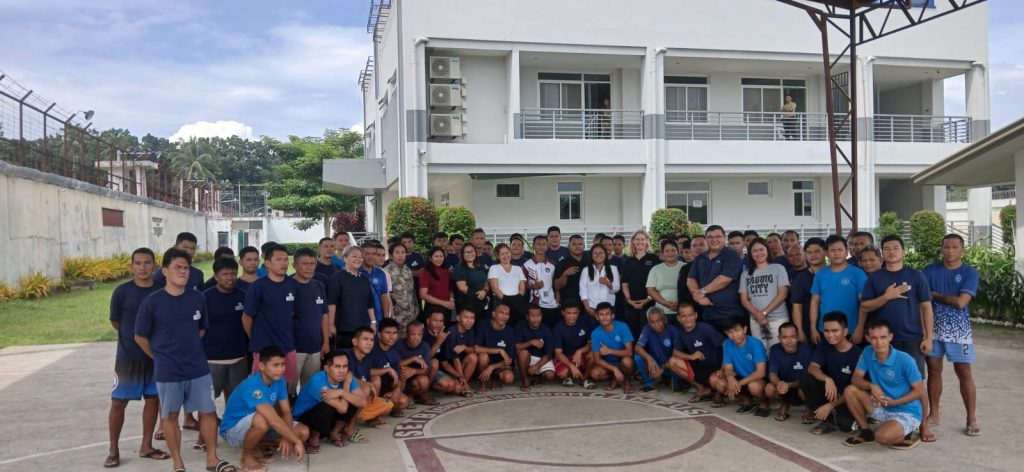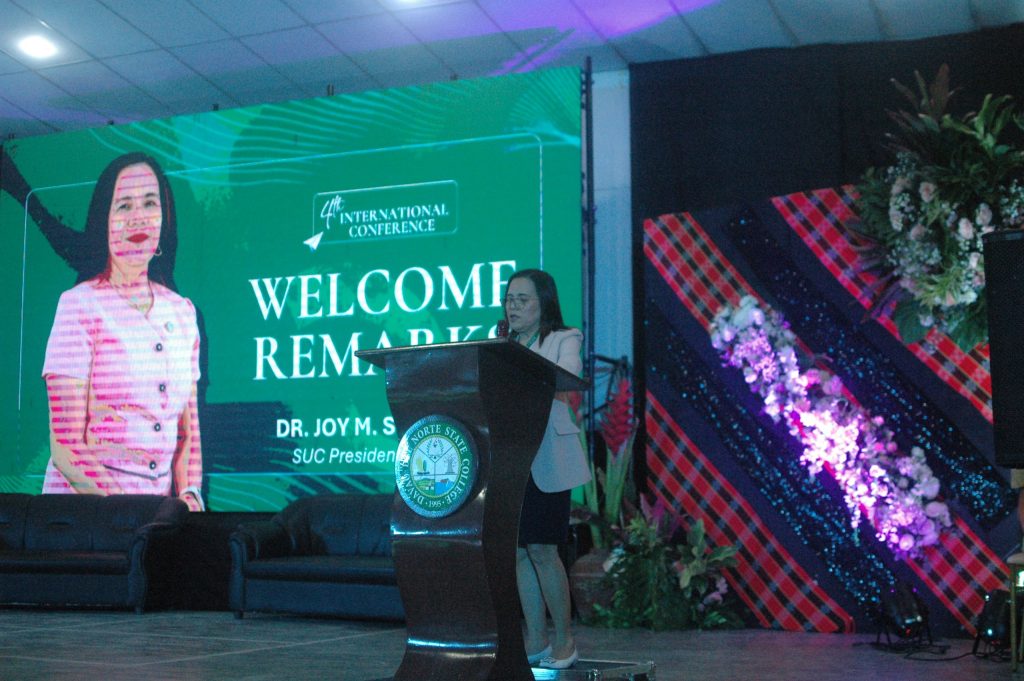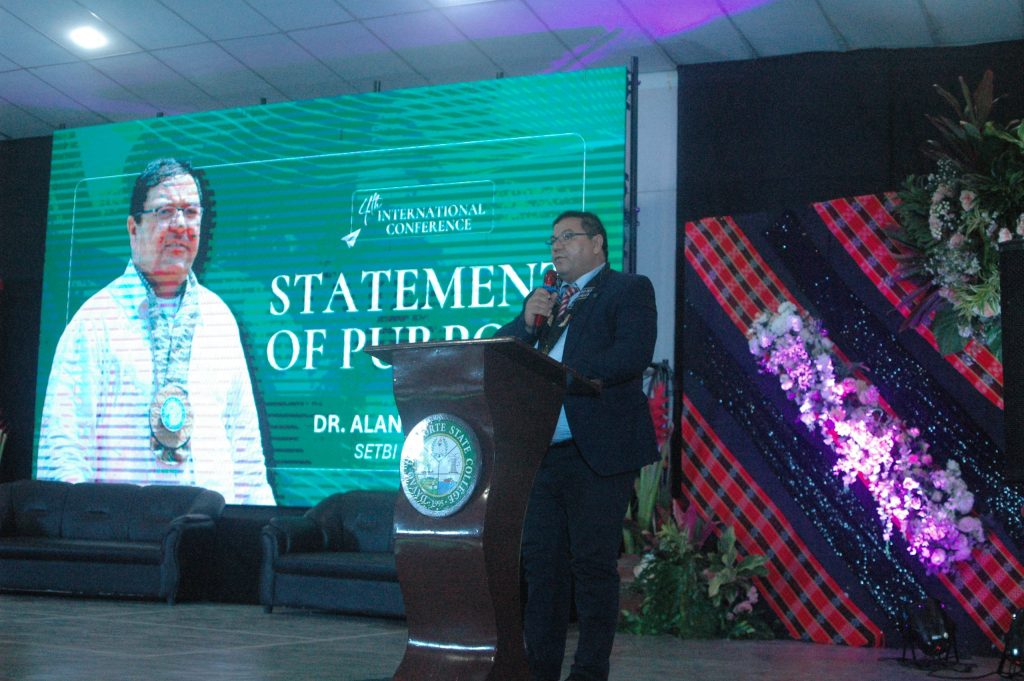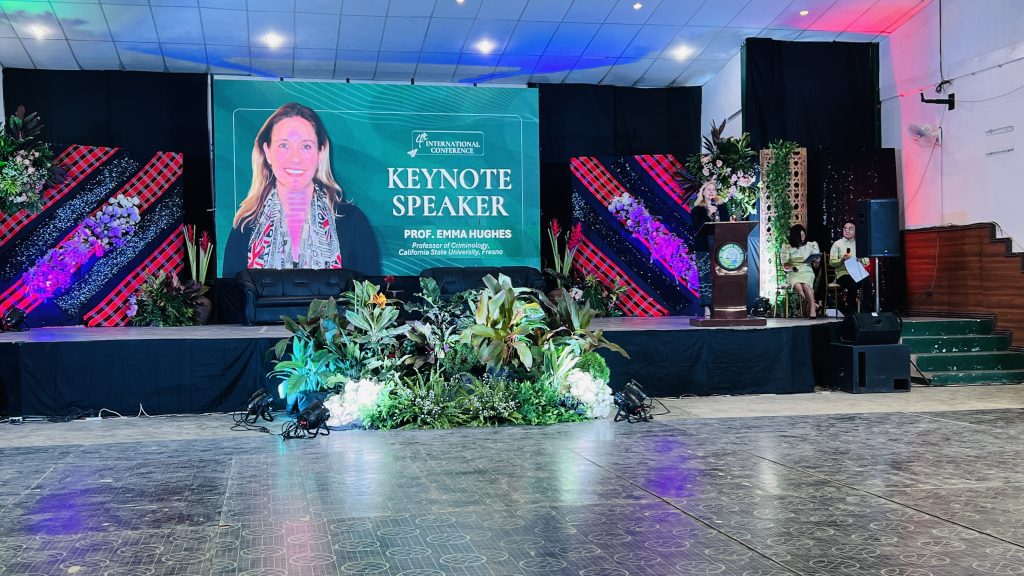THE DAVAO del Norte State College gymnasium was all-hands-on-deck, putting on the finishing touches for the SETBI’s 4th International Conference on Persons Deprived of Liberty’s Transformative Education for Successful Re-entry. People from all over the country, with a keynote speaker from California, were settling down as the organizers buzzed around them.
This conference was organized by the Social Entrepreneurship Technology and Business Institute, founded by Dr. Aland D. Mizell and co-founded by Atty. Susan P. Cariaga in 2016. The impetus for a program to offer degrees to the PDL came when a US team accompanied Mizell and his MCI students to distribute backpacks of school supplies at the Davao City Jail.
Dr. Mizell was dismayed by the overcrowded conditions, the long confinement, and the wasted lives behind bars. Some had been stuck in there, averaging ten years, despite being presumed innocent, yet none used their time productively. Feeling compelled to respond to their plight, Dr. Mizell conceived of College Education Behind Bars.
A year before, Atty. Cariaga had wanted to set up a Celebrate Recovery Program at her home church, so Dr. Mizell invited Celebrate Recovery leaders from Texas to train select parishioners for this step program and to set up the classes at her church.
When researching carceral education in the Philippines, Dr. Mizell found out that there were already plenty of faith-based programs working with the jail. Additionally, the people deprived of liberty (PDL) needed to get jobs following their incarceration.


That’s when the founder of the first College Education Behind Bars inside Davao City Jail, Dr. Mizell, decided to build an actual college inside Davao City Jail and to partner with the University of Southeastern Philippines (USEP) and the BJMP to offer college degrees to redeem the PLD’s time and to prepare them for reentry as well as careers. Besides educating the enrollees, they decided to integrate recovery and rehabilitation into the program to ensure they were equipped to make correct life choices.
The jail management readily approved Dr. Mizell’s proposal, so an architect inside the jail designed the plans and oversaw the construction. Previous USeP president, Dr. Lourdes Generalao, immediately agreed to partner with CEBB to make it happen, saying that she would handle getting it approved by her board.
Following that, a memorandum of Agreement was drafted among SETBI, USeP, and the BJMP and signed. Once approved, they started the work as soon as they could. Because few wanted to risk financing a program that might not work, funding was slow, but Dr. Mizell and Atty. Cariaga offered collateral while funds were solicited. The SETBI campus was built in the Davao City Jail. Almost ten years later, in 2025, it has produced multiple success stories and garnered global attention, being the first College Education Behind Bars program in the Philippines, hence this current conference.
Following wonderful performances by the DNSC Socio-Cultural Group, DNSC president, Dr. Joy M. Sorrosa, opened the conference, followed by SETBI’s College Education Behind Bars’ founder, Dr. Aland Mizell, who gave a heartfelt speech about the transformative impact of education. They spoke of the inherent worth of every individual and their need for second chances, declaring this conference to be a space for fostering collaboration.


The keynote speaker, a criminology professor from California State University, Fresno, Dr. Emma Hughes, spoke about why prison education matters. Aside from the lowered recidivism rates, higher chances for employment, and lessened cost for the government, prison education gives PDLs dignity and hope.

She described her program at the California Department of Corrections and Rehabilitation, sharing her practices with the attendees. Concluding, she proposed that recidivism rates didn’t capture all the benefits of education, and recounted the individual and emotional effects on the incarcerated students’ lives.
Following an engaging video detailing the College Education Behind Bars’ origins, effects, and testimonials from PDL who were still participating in the classes, the program segued into two plenary speakers, the Honorable Judge Gemma Betonio and Engineer Julius Quirim. Judge Betonio proposed that true justice was not only about punishment, but also about restoration, redemption, and reintegration.
Engineer Quirim, who is the co-founder of SETBI Cares, recounted that he was helping a former PDL reintegrate into society and support his family. This former PDL, Rodolfo Tubio, shared an emotional story about his moving from a life sentence to freedom with the help of SETBI’s College Education Behind Bars program.
Afterward, a panel of experts talked about future plans and the challenges associated with such a program. The first day ended with the participants sharing their research and knowledge of their work to help rehabilitate PDL, the obstacles they faced, and the experience of teaching behind bars. A common theme throughout the day was that every person deserved a second chance, and PDLs should be given humane environments.

Unfortunately, the second day was cut short by a massive earthquake during Professor Hughes’ second presentation about government and higher education programs collaborating to create a community.
For safety, the university took precautions and understandably canceled the rest of the event. However, participants returned on the third day to visit the new campus at the Davao Prison and Penal Farm (DPPF), so the conference proved successful, especially because those who gathered to discuss this field of tertiary education in penal institutions also networked and planned to stay in contact. The conference achieved its purpose of sharing knowledge, which will flourish from there. By Joey Cariaga



